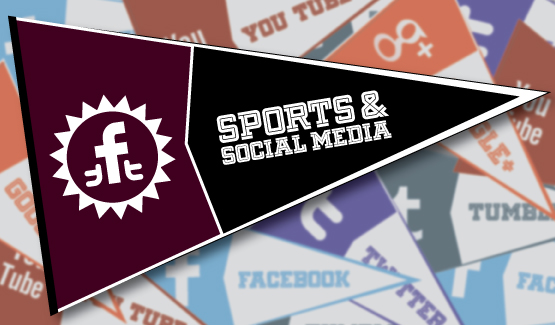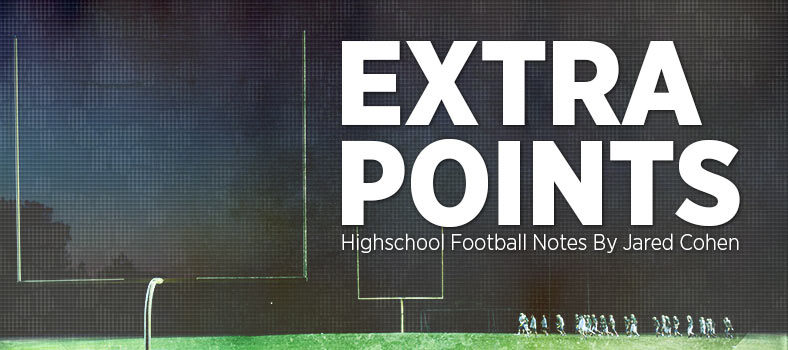Football coaches know better than anyone- you’re only as good as your ability to adapt and adjust. If you’re too stubborn to make an adjustment, the whole team suffers. It’s time for some of these high school coaches and administrators to make a serious adjustment when it comes to social media.
Last night, a brawl broke out in the regular season finale between North Canyon and Mountain Ridge. Not all of the details have emerged yet, but it seems as if Mountain Ridge (1-8) inserted a special needs student to play defense in the fourth quarter, as the Mountain Lions were up 44-8 on the Rattlers (0-9). The move may or may not have been clearly communicated to North Canyon coaches and players, and the resulting events were as follows- Mountain Ridge retaliated, benches cleared, coaches allegedly made physical contact with players, and the game was called with ten minutes remaining. This is already as ugly as any high school extracurricular activity could possibly get, and coaches and administrators should have known the potential for social media to make the situation even uglier, and had a plan in place to address it.
What could have just ended as the worst-case scenario of a misunderstanding between two football programs frustrated by their limited success, has now devolved into an ugly situation playing out on Twitter that has culminated with a junior member of the Mountain Ridge baseball team referring to the student who made the hit on the special needs player (who has apologized) as a “terrorist” due to his name and skin color, as well as other homophobic slurs. Whether coaches and administrators at Mountain Ridge want it to or not, it reflects on their programs and school as a whole. This event can be added to the multitude of other unfortunate social media snafus at other schools this year, whether it be players tweeting at halftime during blowouts, long-graduated alumni picking fights with students at the opposing schools while administrations turn a blind eye, or posting pictures of illicit drug use- it’s all happening and it could easily be stopped with a more educated and proactive social media strategy.
Earlier this year, I wrote about how college coaches and recruiters who, despite their tendency to pat themselves on the back about their social media policies, haven’t gone far enough to ensure these kids are getting the message about what is and isn’t acceptable.
Still, the issue can’t solely be addressed at the collegiate level. By the time these kids are old enough to be recruited, it’s too late. The other issue is that the social media environment is just like any other- the people you surround yourself with are going to reflect on you whether you like it or not. When a kid retweets or favorites questionable material from another member of the student body, or fan of the program, or even a parody account, the assumption is that they endorse that viewpoint. Another assumption, whether it is correct or not, is that if a student or student-athlete feels the freedom to regularly express views that are inappropriate, the parents and school are passively affirming the behavior.
I’m coming at this topic from a unique perspective. I’m a high school teacher who also happens to be a prep sports journalist- and before I was a teacher, I made my living as a social media director. You cannot control what a student says or posts online. There are dozens of social media platforms kids have scattered to now that coaches and parents have started to figure out that their kids left Facebook to join Twitter in order to publicly express their private thoughts. Kids will always be able to find some way to stay one step ahead in order keep some semblance of a public profile that is only meant to be kept private from authority figures in their lives. Because administrators and coaches know that they can’t control this behavior, they often ignore it. On a recent edition of the AIA’s Saturday morning radio program, a well-accomplished West Valley coach admitted to having no knowledge of how to access or use social media at all. This needs to change.
Athletes regularly post their school and athletic affiliation in their Twitter biography. If a student chooses to advertise their scholastic affiliation on social media, than it should not matter if inappropriate tweets happen while a student is on campus, during school hours, or even relate to any school activities. Coaches and administrators have a responsibility and a right to guide how the school’s brand, be it public, private or charter school, is portrayed by its members. Not only should all coaches have a social media presence, every school should have a dedicated social media monitor who can ensure that when unfortunate circumstances like the events of last night take place, a preemptive effort can be made to protect the students from their own emotional outburst before those words become a permanent reflection of their character. All it takes is one screenshot to immortalize the racially charged words of a pissed-off teenager, a screenshot that includes not only the name of the student, but the school and coach that allowed that behavior to take place.
Related posts:
Ralph Amsden
Wyoming born. Arizona raised. @ASU alum. English Teacher. Prep sports reporter/editor for @ctownrivals + @azhsfb. Blogger for @thedadletters. I hate pineapples.


